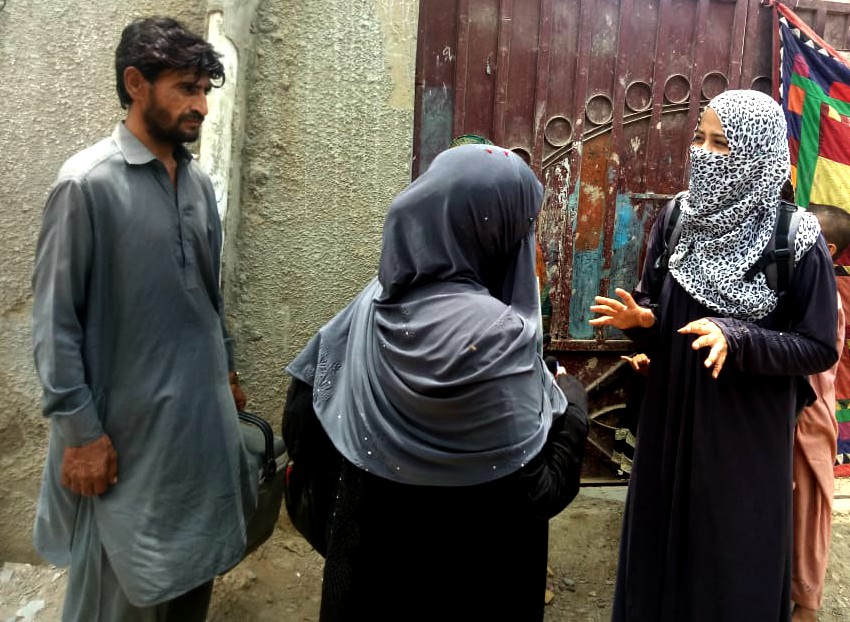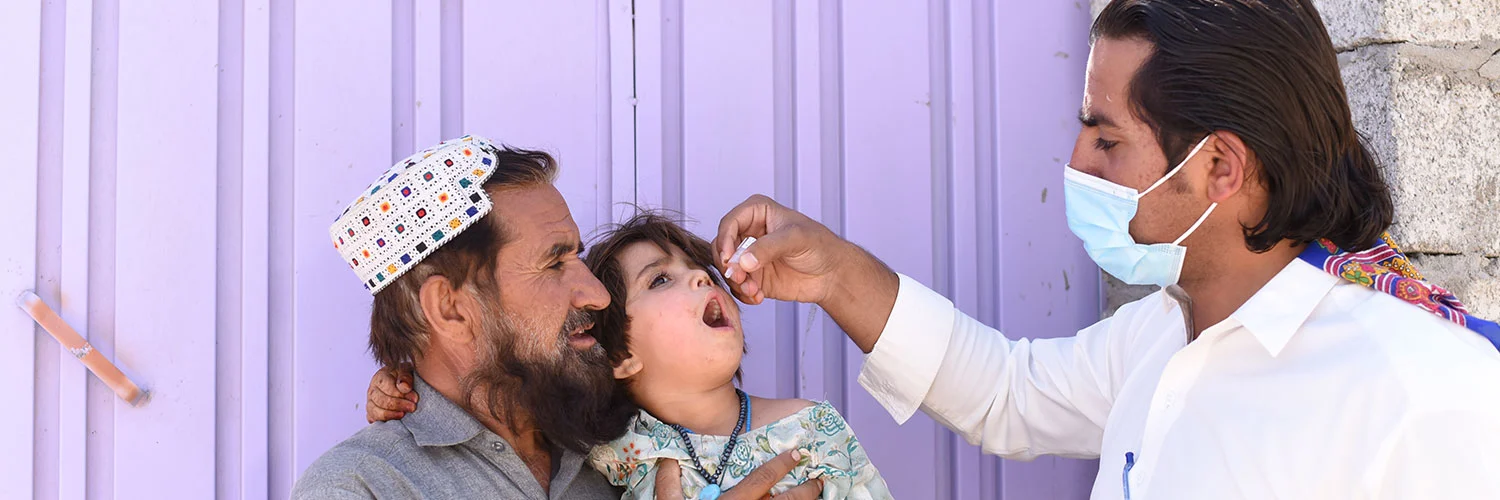
By Abid Hasan
Karachi, Sindh province: UC4 Gadap in the outskirts of Karachi, just off the super highway; the main transit route to Balochistan in one direction while it links to Punjab and KP.on the other side. The area is inhabited by some 600,000 people, 77% of whom are Pashtuns, Afghans and the dominant Mehsud tribe.
Lack of basic health and sanitation service such as solid waste management, sewage system and health facilities is a hallmark of UC4 Gadap.
In this diverse neighborhood, 23 year old Husna works as social mobilizer whose job is to enlighten parents and convince them about the importance of vaccination in protecting their children against polio.
“I started working in 2014 as a social mobilizer in UC 12 Gulshan, a neighborhood where I grew up. It had a posh population bordering some slums. At that point the demand for polio vaccination from the community was extremely low. But our diligent effort paid off and the community there became receptive to vaccination.”
Husna’s good performance resulted in a promotion to the position of Union Council Support Officer UCCSO at the challenging UC4 Gadap. “it is an extremely rough neighborhood. Initially, I was excited about the promotion, but when I came to the UC, I was taken back and felt worried. It was very difficult as the community was resistant to vaccination. They would not let us into their houses and even misbehave with us, but this did not break our resolve.”, says Husna.
Husna doesn’t give up to the challenge and has deep belief that resistant communities would eventually get convinced. She visits refusal households repeatedly and those who taunted her against working for the polio programme and using her training on behavior change, she is not only accepted in the community but also able to help convert half of the 8,000 or so refusals in the community.
Despite the progress, issues continue to arise . “people in this community say that there is no water, no garbage collection, no sewage system so why should they accept polio drops. It is a constant battle convincing them. However, now they know me and the communication lines are open. More often than not, I succeed in convincing them.”
Husna makes her way through a pile of trash to reach communities living by an open sewage channel which is responsible for polio being tested as positive in the environment.
There are dozens of women like Husna who go door to door to vaccinate children in neighborhoods and educate parents about the significance of vaccination where this was not possible few years ago. “We care for our children. That is why we go to explain people the efficacy of anti-polio drops. It horrible for a child to have to live with polio, only because his parents failed to get him vaccinated, my dream is that parents understand this and save their children from lifelong disability.”

